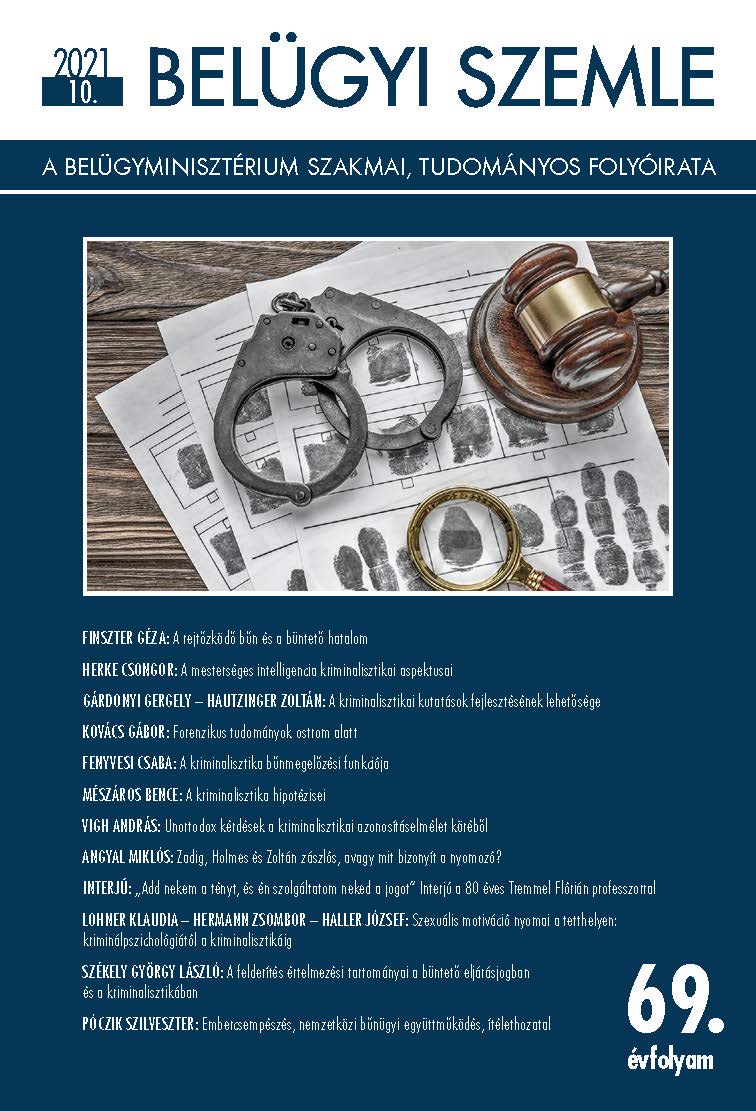Abstract
The new Hungarian criminal procedure code has divided the previously unified investigation into detection and inquiry phases. In the two stages of the investigation, the relationship and powers of the police and the prosecutor are different, and the legislator envisioned and proposed different “method” of investigation in the two stages (the detection phase originally has a data-gathering nature, while the inquiry phase has a proving nature). If we review the terminology of criminal detection in the criminal procedure code, or in the previous Hungarian codes, and in the theories of jurisprudence, we can find very different meanings. Criminal detection also means something different in the Anglo-Saxon approaches, and in the Hungarian forensic sciences. In my study I review and compare these different meanings, and I examine, if these meanings correlate to the detection-conception of the criminal procedure code.

